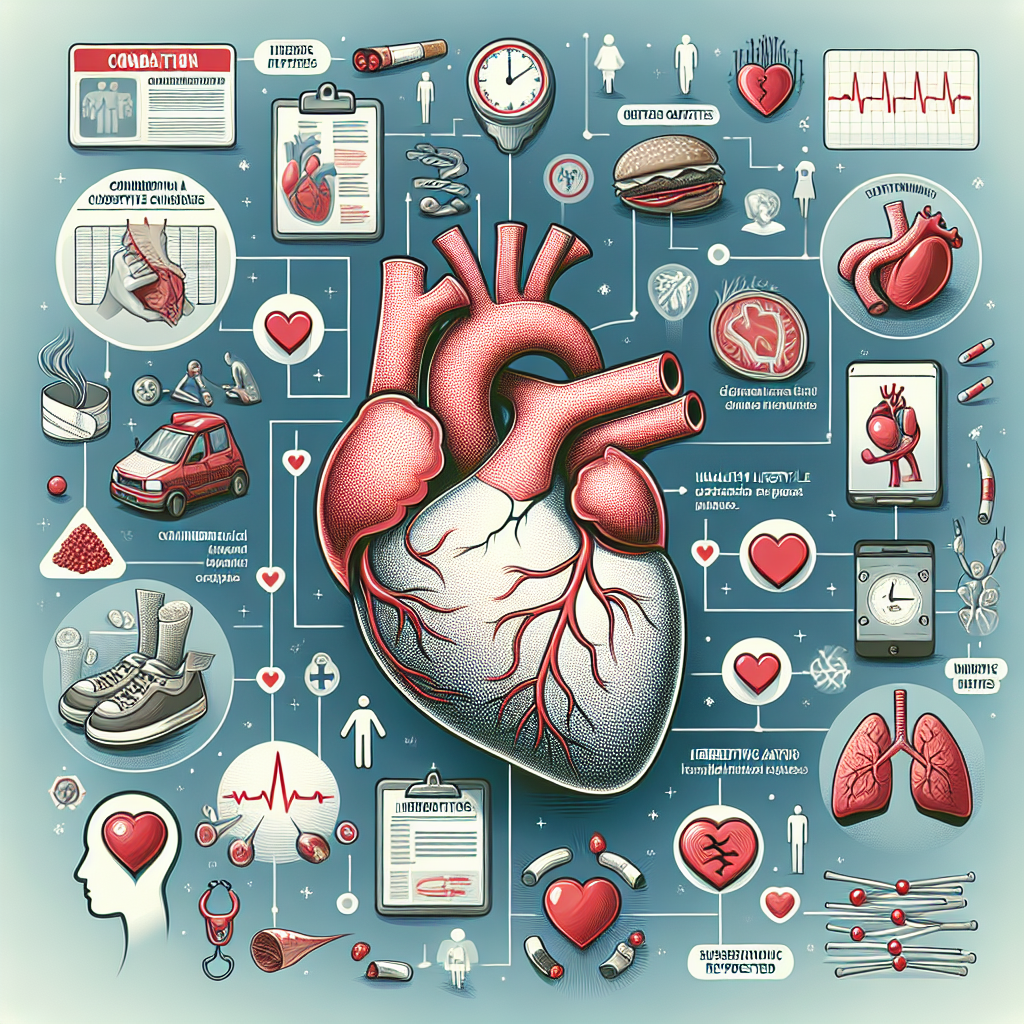Introduction
Heart disease, also known as cardiovascular disease, is an inclusive term for conditions that affect the heart’s structure and functionality. It is a global health issue and the leading cause of death worldwide, which makes understanding its causes and symptoms extremely crucial. By having this knowledge, individuals can better monitor their health and implement the necessary preventative measures.
Causes of Heart Disease
There are numerous factors and conditions that can lead to the development of heart disease. Understanding these causes can pave the way for effective prevention and management of the condition.
Genetic and Familial Factors
Heart disease may be hereditary. Individuals with a family history of heart disease are at a higher risk of developing the condition. The risk increases when close relatives have been diagnosed with heart disease at an early age.
High Blood Pressure and Cholesterol
High blood pressure and elevated cholesterol levels can escalate the risk of heart disease. Blood pressure is the force exerted on artery walls as the heart circulates blood. If this pressure is consistently high, it puts unnecessary stress on the heart, causing heart disease over time. Similarly, high cholesterol levels can lead to the buildup of plaques in the arteries, causing atherosclerosis, a form of heart disease.
Lifestyle Factors
Unhealthy lifestyle choices, such as smoking, excessive alcohol intake, poor diet, and lack of exercise, can greatly contribute to the development of heart disease. Smoking, for instance, wreaks havoc on the cardiovascular system by narrowing blood vessels and increasing heart rates.
Symptoms of Heart Disease
The symptoms of heart disease can greatly vary and depend on the specific condition an individual has. Here are some common signs to look out for:
Chest Discomfort
Chest pain or discomfort, also known as angina, is one of the most common symptoms of heart disease. This pain could be severe or mild, and it often feels like pressure or squeezing in your chest.
Shortness of Breath
This symptom often signals that the heart is not effectively pumping blood. The shortness of breath often occurs with physical activity or at times of rest.
Erratic Heartbeats
Having a racing heartbeat or experiencing palpitations can be an indicator of heart disease. It is typical to feel the irregularities in your pulse, especially if you have episodes of arrhythmia.
Conclusion
Understanding the causes and symptoms of heart disease is vital. This knowledge allows individuals to take proactive measures to lower the risk. It’s important to not only manage obvious risk factors like high blood pressure and cholesterol but also address lifestyle factors such as diet, exercise, and substance use. Furthermore, familiarizing ourselves with the symptoms will allow for early detection and intervention, improving the chance of survival and quality of life amidst a heart disease diagnosis.
FAQ Section
1. Can heart disease be prevented?
Yes, implementing healthy lifestyle habits can significantly reduce the risk of heart disease. This includes regular exercise, a balanced diet, avoiding tobacco use, and maintaining healthy blood pressure and cholesterol levels.
2. Are heart diseases curable?
While some forms of heart disease can be cured, others can only be managed with medication and lifestyle changes.
3. Can heart disease be hereditary?
Yes, a family history of heart disease puts you at a higher risk. However, lifestyle and other environmental factors also play a crucial role.
4. Can you develop heart disease even if you lead a healthy lifestyle?
Yes, factors such as age, family history, and certain medical conditions can contribute to the development of heart disease, irrespective of lifestyle.
5. Is heart disease common in young people?
Heart disease can occur at any age. However, the risk increases as you age, especially if other risk factors are present.

Leave a Reply